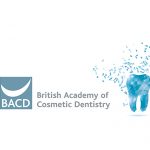 More and more patients are starting to realise the benefits of having a truly healthy and beautiful smile. This is one of several reasons why cosmetic dentistry has become incredibly sought after in recent years, emphasising the need for clinicians to keep up-to-date with the latest trends and techniques. As a world-leading authority in the field, the BACD offers access to unparalleled educational opportunities that enable dental professionals to expand on their knowledge and skills.
More and more patients are starting to realise the benefits of having a truly healthy and beautiful smile. This is one of several reasons why cosmetic dentistry has become incredibly sought after in recent years, emphasising the need for clinicians to keep up-to-date with the latest trends and techniques. As a world-leading authority in the field, the BACD offers access to unparalleled educational opportunities that enable dental professionals to expand on their knowledge and skills.
The BACD Annual Conference is always a highlight of the dental calendar, providing a platform from which to learn and network. This year’s three-day event will deliver an educational programme covering a diverse range of topics, with industry leaders, influencers and innovators sharing their wisdom to help delegates raise their own standards of cosmetic dentistry. Among the most anticipated hands-on workshops of the Annual Conference will be Dr Oliver Harman’s session on “The 16 Things You Need To Know To Be A Cosmetic Dentist”.
Dr Harman has extensive experience in all aspects of cosmetic and general aesthetic dentistry, having owned successful private practices in Chesham, Buckinghamshire, and in Tunbridge Wells, Kent. Dr Harman has also worked for Oasis Dental Care/BUPA and MyDentist. He is a Director of the BACD, Chair of the BACD Credentialing Committee, and an examiner for the BACD Accreditation Programme. He is also one of only two UK dentists to have achieved the prestigious BACD Fellowship Award. His professional insight will prove particularly valuable to those seeking to get more involved in the world of cosmetic dentistry.
“As the modern dental profession requires both technical and creative skills, there is a natural progression towards cosmetic dentistry for many dentists,” Dr Harman says. “There is also emotional value in offering good cosmetic dentistry – patient satisfaction can be very high and they really appreciate the work their dentist does for them in this area. However, treatment outcomes can be subjective – you could do amazing work, but if it is not what the patient imagined, then treatment could still be deemed a failure. Both clinical and communication skills are therefore crucial.
“During my session, I will cover the pillars of knowledge you must have to be a cosmetic dentist, as well as lots of useful tips, insights and potential danger zones. I want to help make the unknowns, known, so practitioners know where they stand, where they need to improve and what they can aim for in order to become better cosmetic dentists.
“I will cover the 16 core subjects required by all good cosmetic dentists. Many GDPs are already very proficient in most areas, but perhaps just need to advance or refine their skills in others. Insufficient training or experience in just one or two areas can ruin an otherwise great case, so days of work with the patient and the technician are wasted. Identifying skills that require development is essential in order to become a good all-round cosmetic dentist. It is not a linear learning process either – we all need to continuously update our knowledge and skills so that we remain at the forefront of modern techniques and materials.
“A key challenge, particularly for undergraduates, is the variation in information provided about cosmetic dentistry. Additional training is necessary so dentists need to choose courses that offer high quality, comprehensive education. The learning pathway itself is mostly self-guided, so I hope my session on the 16 core subjects for cosmetic dentistry will help delegates plan their development effectively. This aligns perfectly with the GDC’s new approach to the Personal Development Plan (PDP), which requires dentists to establish areas for further training and then plan their learning accordingly.
“For dentists seeking guidance and recognition for their commitment to skill advancement, I will also discuss the BACD Accreditation Programme. This is essentially designed to assess cosmetic dentists in the 16 core subjects and award those who achieve consistently high standards across the board. BACD Accreditation is absolutely within the reach of every aspiring cosmetic dentist, it just takes time and dedication to training. You will likely already be competent in many areas, so it’s just about focusing on those areas you can improve.
“At the end of the day, cosmetic dentistry is no different to normal general dentistry, there’s just another level of attainment required. It involves another layer of treatment planning and a little extra thought. It is also definitely not about excessive dentistry or over-treatment. With today’s materials and techniques, we can achieve outstanding cosmetic and functional outcomes by taking a minimally invasive and often more affordable approach.”
With many other learning opportunities available at the BACD’s Sixteenth Annual Conference, Dr Harman adds: “It’s great to meet up with old friends and get to know some of the newer, passionate BACD members. Learning definitely does not stop after the formal lectures and I know chatting in the bar afterwards – often well into the night – has been an equally essential source of learning for me. The opportunity to discuss cosmetic dentistry in a relaxed, friendly environment with some of the best cosmetic dentists in the UK today is a real privilege.”
Book your place by visiting the BACD website today.
The BACD Sixteenth Annual Conference 2019
‘Delivering Excellence: Tradition vs. Innovation’
7th– 9thNovember 2019
Millennium Gloucester Hotel
Kensington, London
For further enquiries about the British Academy of Cosmetic Dentistry, visit www.bacd.com







